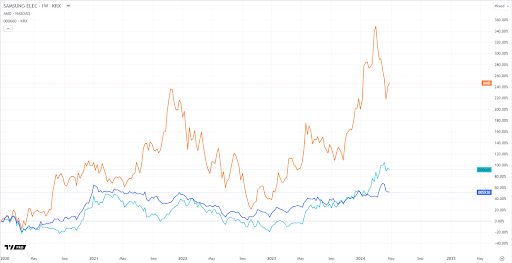IPTV is a system that uses the Internet Protocol to deliver television programming. It is an alternative to the traditional cable TV or satellite TV systems. Many people are interested in IPTV because it offers a lot of advantages over these other systems. However, there are also some disadvantages that you should be aware of before you make the switch to IPTV.
What is IPTV?
IPTV, or Internet Protocol Television, is a system that delivers television content using the internet protocol suite instead of traditional cable or satellite signals. This means that instead of your TV getting its signal from a physical cable coming into your home, it gets the signal from the internet.
There are a few different ways to get IPTV, including through a set-top box, smart TV, or mobile app. IPTV can offer a better picture quality than traditional methods because it isn’t limited by bandwidth constraints. It can also be more affordable than cable or satellite TV because you only pay for the channels that you want.
However, there are also some drawbacks to IPTV. One is that it can be less reliable than other methods because it relies on your internet connection. If your internet goes down, so does your TV. Additionally, IPTV can be subject to buffering and lag because it’s streaming data instead of playing it from a physical source.
Advantages of IPTV
- Increased flexibility: IPTV subscription offers a much more flexible viewing experience than traditional television. You can pause, rewind, and fast forward content as you please, and you’re not limited to watching programs on a set schedule. This is especially convenient for busy people who want to catch up on their favorite shows but don’t have the time to sit down and watch them live.
- Improved picture quality: IPTV streams tend to have a much higher picture quality than traditional TV broadcasts. This is due to the fact that IPTV uses an Internet connection instead of airwaves to deliver its content. The result is a clearer, sharper image that looks great on HDTVs.
- More content options: IPTV provides access to a wider range of content than traditional television. In addition to all the usual TV channels, you’ll also be able to find many niche channels that cater to specific interests. This means there’s something for everyone to watch on IPTV.
- Easy integration with other devices: IPTV is very easy to integrate with other devices in your home, such as your computer, smartphone, or tablet. This allows you to watch TV content on your terms, whether you’re relaxing in
Disadvantages of IPTV
There are a few potential disadvantages of IPTV that should be considered before making the switch from traditional cable or satellite TV. First, IPTV requires a high-speed internet connection, which may not be available in all areas or may be more expensive than other options. Additionally, IPTV can be more susceptible to interruptions and outages than traditional TV, especially if your internet service is also down. And finally, IPTV channels and packages may be more limited than what is offered through traditional TV providers.
IPTV providers
If you’re thinking about signing up for IPTV, you’ll want to research the different providers to find the best fit for you. In this blog section, we’ll take a look at some of the most popular IPTV providers and explore the pros and cons of each.
One of the most popular IPTV providers is AT&T U-verse. AT&T U-verse offers a variety of channels, including many HD channels, and their service is generally reliable. However, some customers have complained about high prices and poor customer service.
DISH Network is another popular IPTV provider. DISH Network offers a wide selection of channels, including many HD channels, and their service is also generally reliable. However, like AT&T U-verse, customers have complained about high prices and poor customer service from DISH Network.
Comcast XFINITY is another option for IPTV service. Comcast XFINITY offers a good selection of channels, including many HD channels. Comcast XFINITY’s customer service has been improving in recent years, but there are still some complaints about price and billing issues.
There are a few other smaller IPTV providers out there, but these are some of the
IPTV resellers
If you’re thinking about becoming an IPTV reseller, there are a few things you should consider first. In this blog post, we’ll go over some of the pros and cons of reselling IPTV so that you can make an informed decision.
The Pros:
- You can make a good profit margins as an IPTV reseller.
- It’s a relatively easy business to get into. All you need is a reliable IPTV source and a website or platform to sell from.
- You can reach a global audience with IPTV reselling. Since IPTV is not limited by geographical boundaries, your potential customer base is virtually limitless.
- You can offer a wide range of channels and content to your customers since there are many different IPTV providers out there. This gives you an advantage over traditional cable or satellite TV providers who are limited to their own channel offerings.
- There is little overhead cost associated with being an IPTV reseller, making it a very low-risk business venture.
The cons:
- The margins in the IPTV reselling business are not as high as they were once, due to increased competition
Is IPTV legal?
There’s been a lot of talk lately about the legality of IPTV. While some people say that it’s perfectly legal to watch IPTV, others claim that it’s illegal. So, what’s the truth?
Unfortunately, there’s no easy answer. The legality of IPTV depends on a number of factors, including where you live and where the IPTV service is based.
In general, however, it’s likely that IPTV is legal in most countries. This is because most laws focus on the distribution of copyrighted material, not the viewing of it. As long as you’re not downloading or sharing copyrighted content, you’re probably not breaking any laws.
Of course, this isn’t a definitive answer, so if you’re concerned about the legality of IPTV, you should do your own research.
IPTV VPN
One per of using an IPTV VPN is that it can help you bypass restrictions placed on your internet service provider (ISP). This is especially helpful if you live in a country where the government censors the internet. By using a VPN, you can access websites and content that would otherwise be unavailable to you.
Another pro of using an IPTV VPN is that it can protect your privacy. When you connect to the internet through a VPN, your traffic is encrypted. This means that your ISP can’t see what you are doing online. This is beneficial if you want to keep your online activities private from your ISP or anyone else who might be monitoring your traffic.
A con of using an IPTV VPN is that it can impact your internet speed. This is because your traffic has to travel through the VPN server before reaching its destination. This can add some extra time onto your browsing or streaming experience. However, this is usually not a significant problem unless you are trying to stream video in high definition or do other bandwidth-intensive activities.
Overall, the pros of using an IPTV VPN outweigh the cons. If you are concerned about privacy or want to bypass restrictions placed on your internet usage, then an IPTV.
You may be interested in: Why Build an IPTV/OTT Platform for Streaming

;Resize=(1200,627)&impolicy=perceptual&quality=medium&hash=9f3390a0a8eb7a3c12f47a75aea752597aec5daf2dac6a30cad674d00adc1eee)



;Resize=(1200,627)&impolicy=perceptual&quality=medium&hash=8e47ee999c291c6329e64a5bf247b3631ab0d7599578f6abc2c238e21d3ced8b)






